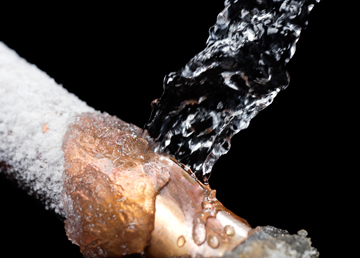The extreme British weather can have a serious impact on the drains, plumbing and pipes within your home, especially as the colder months draw closer. The cold can wreak havoc on our drains and pipes, resulting in them becoming blocked, flooded or bursting under the pressure.
We’ve put together our top tips on how to keep drains perfect in winter months, helping you to avoid expensive repair costs and keep things running smoothly.

Insulate
Pipes are often prone to freezing in the colder months, especially those that are located within lofts or attics. If this sounds like something you’ve had to deal with in the past, there are some insulation materials, like foam and hot water jackets, that are able to work to prevent pipework from freezing.
Heat
Icy water inside your pipes can cause cracks, which can further lead to costly repairs. You can help to keep your pipes from freezing, in great condition and crack free by leaving your central heating on a low temperature overnight, when temperatures are coldest. This ensures the water in your pipes continues to flow at a heat that will not freeze.
Defrost
If you’re unfortunate enough to realise your pipes have already frozen, you’ll want to work on defrosting them before they begin to expand and crack. Often, homeowners will turn on the central heating in order to do this, but this can also cause pipes to expand and crack as the temperature suddenly changes. Instead, try a gentle defrosting method of placing warm water soaked towels over the pipes.
Blocks
The colder months can also cause blockages within your pipes. Any trace of oil, fat or grease within your pipes will harden as the temperatures drop causing a blockage. Before these blockages become a bigger issue, slowly pour boiling water down the drain to soften up the blockage and remove them.
Water Supply
If, unfortunately, you have encountered a burst pipe, you will need to turn off the main water supply as soon as possible. You can do this by turning the stopcock in a clockwise motion. If the water flow does not stop from the burst pipe, you will need to drain your cold water storage tank in order to stop the water flow.
Here at Drain Checker, we can help you with any drain repairs, including associated pipework. If you’d like to find out more about looking after your drains in winter, get in touch with a member of the Drain Checker team by visiting our contact page.


